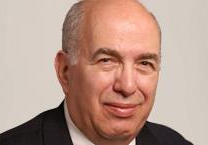Don’t Give Up on Active Investing – It’s Worth Pursuing!

The average American will never be a professional baseball player. Yet many children dream of becoming one, and against the odds, some actually grow up and turn pro and are well rewarded in every way.
The average American makes $26,695 per year. In spite of this fact, people still insist on enrolling in college; others become entrepreneurs in an effort to beat the average salary.
Active portfolio managers, on average, underperform their passive benchmarks. But that doesn’t stop any of them from trying to beat the index, and many clients are willing to hire them to make the effort.
And yet, the evidence against active management is very compelling. So, let’s accept the argument, for now, that passive beats active. Maybe I should just index my portfolio and take the rest of the day off?
This attitude is unsettling to me. If there is a chance, why not try? When I was young, I had the impossible dream of becoming a professional athlete. I also went ahead with pursuing an education to improve my odds of earning an above-average salary.
Whether you want to be an athlete, an entrepreneur, or a portfolio manager’s client, you are trying to beat the odds. But given the evidence stacked up against active management, why should we even try? I’ve got a couple of good new reasons.
- Is outperforming worth trying for? A check of Morningstar data as of the end of June shows that the median U.S. equity fund over the last 10 years has reported an annualized return of 7.94%. Funds that landed in the top 25% of the performance survey earned at least 10.00%! That is a difference of 2.06% per year. Is this worth striving for? Does it pay off to be a professional baseball player?
- We usually talk about percentage returns, but it might be more helpful to look at what this 2.06% difference means in dollars. If you started with a portfolio of $100,000 and your performance beat the average manager (or the passive index) by 206 bps a year for 10 years, you would have $22,618.40 more than the client of the average manager.
- Here is another way to look at it. We tend to focus on measuring investment performance over time horizons ranging from 1 month to 10 years. But if we’re younger, if we expect to live for many years, or if we care about what happens to those who inherit our wealth, we usually want to keep our wealth growing much longer than for just a few months or years. The average American is 37 years old today, and a male at this age can expect to live another 41 years, on average. Compound an extra 2.06% return over 41 years, and the portfolio of a first-quartile equity fund manager would be worth at least $126,059.40 more than the portfolio of the median manager. Recall that our initial portfolio was just $100,000. Are you willing to concede yet that the effort to find a great manager is worth it?
- But what are the odds against finding a great manager? Is guessing what is the next great fund just like buying a lottery ticket? The odds of winning the lottery may not be great for most people, but you are competing against random numbers. In fund manager selection, you get to compete against other investors. It is more like poker than the lottery. All investors are competing with one another to find the next great manager.
- How much better than average do you have to be to find a fund that outperforms the average? As the old joke goes, if we are with a group of people in the woods and a bear threatens us, we don’t have to outrun the bear; we just have to run faster than the rest of our group! Similarly, if we can predict a little bit better than average, then we can make a whole lot of money.
But how can we pick better managers? There have been several articles published in this blog in recent months that can give investors a head start.
If you are still skeptical about your own, or anybody else’s, ability to select great managers, I’d suggest that you consider turning manager selection on its head. Instead of trying to pick the winners, avoid the losers. If you are successful at winnowing out the future underperformers, the odds of outperforming are naturally more in your favor. How can you eliminate losers? Start by eliminating the fund managers who demonstrate persistent underperformance. Avoid funds where there is a change in the lead portfolio manager. Eliminate funds from consideration that have very high management fees. Avoid funds with high portfolio securities turnover. All of these are warning signs. For more information on avoiding the losers, here are a couple of articles that you may find helpful.
Bottom line: It’s worth pursuing better managers and better funds. The payoff if you are right is very high, you are competing with other people for the best managers and funds, there are ways to pick better managers, and there are ways to improve the odds further by avoiding the losers.
If you liked this post, don’t forget to subscribe to Inside Investing via Email or RSS.



This article reminds me of my days at the University of Glasgow when I used to argue with Prof Simon Keane, he is a firm believer that managers cannot consistently beat the market.
In as much as he is in support of being a passive investor, he also recognize the fact that active investors play significant role in keeping the market efficient.
I love the tips you gave on how to avoid managers that are most likely not to make you above average return. I have always known that it is worth the effort.
Thanks for sharing.
Chinweike